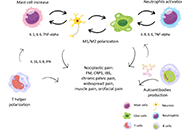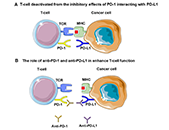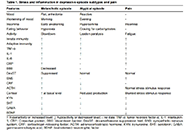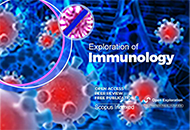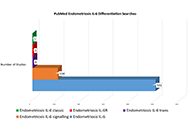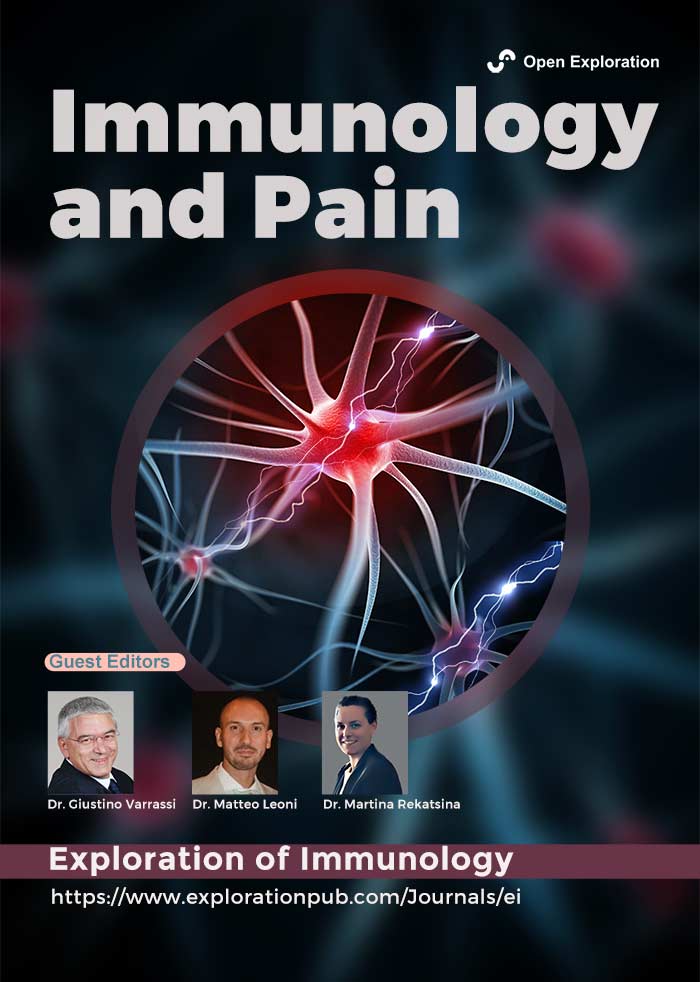
Immunology and Pain
Guest Editors
About the Special lssue
From a scientific point of view, Pain Medicine represents an incredibly attractive topic, with over 230,000 publications on PubMed in the last 10 years. In the same period, over 10,000 of them connect "pain" to "immunology". The strict interactions between immunology and pain medicine are increasingly investigated, and many aspects are becoming more and more clear.
One of the most explored aspects is the interconnection between body lesions as generators of acute pain and immunological responses. In fact, acute pain is perceived as a protective and a cardinal feature of tissue lesions and inflammation.
Also, the interconnections between chronic pain and the immunological system are primarily explored. Chronic pain consequent to arthritis, nerve injury, cancer, and chemotherapy is associated with a chronic local inflammation in the peripheral or central nervous system, described as neuroinflammation.
More clearly, pain seems to be a hallmark of neuropathy, both acute and chronic, caused by tissue injuries and translating via inflammatory diseases. It is mediated by nociceptor sensory neurons that innervate the different parts of the body and protect from noxious stimuli at all levels and in different conditions.
The nociceptor system is sensitized by the inflammatory mediators produced by the immune system, including growth factors, lipid mediators and cytokines. It also detects pathogens and their secreted products, and generates pain during infection. Recently published data also suggest that bacterial infections regulate pain through direct actions on sensory neurons, and specific receptors are present in nociceptors to detect danger signals from infections. When activated, nociceptors react, releasing neuropeptides from their terminals. This potently shapes the function of innate and adaptive immune cells. So, the role of nociceptor interactions with the immune system in pain and infection is primarily discussed. Researchers are widely trying to understand these pathways better and find new approaches to treat infectious diseases and chronic pain.
In most of the arthritic pathologies (e.g., rheumatoid arthritis, gout, ankylosing spondylitis, knees and hips osteoarthritis), chemokines and cytokines (products of the immunity system) strongly participate in the local and central inflammatory response, and in the central nervous system sensitization. All these pathologies and the pain they generate are significantly connected to psychological distress represented by clinically significant anxiety and depression conditions. The role of cytokines, even if it is a clear connection between them, together with the role of the Janus kinase inhibitor, would still deserve deeper investigations.
The strict connections between pain medicine and immunology are also evident thinking of potential modulators of both of them. Physical activity in acute bout increases pain and reduce immunological defenses; while a regular and not stressful exercise modulates the central nervous system excitability, frequently associated with pain, and the immune system.
In other terms, an increasing quantity of data suggests that non-neuronal cells, such as immune cells, stem cells, and glial cells, and cytokines play active roles in the pathogenesis and resolution of pain. This "special issue" explores how non-neuronal cells interact with the nociceptive system and how the secretion of neuroactive signaling molecules may modulate pain. It would also discuss new therapeutic strategies to control neuroinflammation to prevent and treat chronic pain. We hope that all the interested researchers will contribute to achieving these goals submitting the results of their researches to this "special issue".
Keywords: Pain, pain Medicine, immunology, immunity System, infections, arthritis, rheumatoid Arthritis, knee Arthritis, hip Arthritis, gout, inflammatory responses, chemokines, cytokines, janus kinase inhibitor
Published Articles
